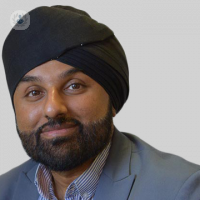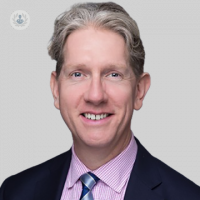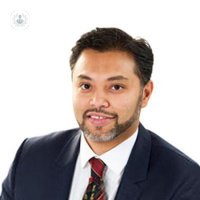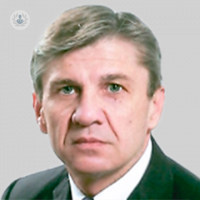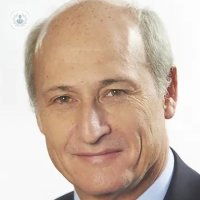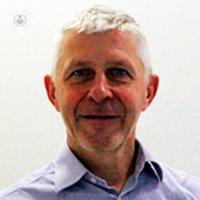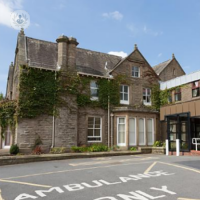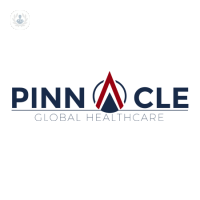What are stem cells?
Stem cells are cells that can differentiate, that is, they can transform into other tissues and organs cells. Stem cells can be found in any grown human body. Stem cells can divide into:
- Totipotent stem cells , which can become any kind of organic tissue;
- Pluripotent stem cells , a cell type that can transform into nearly all types of cells for tissues and organs;
- Unipotent stem cells , which can only produce one cell type;
- Multipotent stem cells , that is, cells which can only differentiate into a limited number of cells;
- Oligopotent stem cells , which can differentiate into only a few cell types.
Stem cells can be found in the bone marrow, in the brain, in the dermis (skin) and in the dental pulp. In newborns, the umbilical cord and amniotic fluid are also rich in stem cells.

What are stem cells for?
Stem cell therapy is currently used in the UK as part of treatment for certain types of blood cancer. Stem cells enable significant blood transfusions after aggressive cancer treatment for conditions such as non-Hodgkin lymphoma .
Because stem cells can regenerate old or damaged cells, there is significant interest in its use for a much wider range of conditions. Stem cell therapy is currently being researched for the treatment of conditions as varied as muscular dystrophy, jaw pain, Alzheimer’s disease. Treatment would consist of a procedure by which the damaged tissues or organs are healed by using stem cells.
Within ophthalmology, there is a lot of ongoing research looking into the potential uses of using stem cells to treat ocular conditions.
03-20-2013 09-29-2023
Stem cells
Dr Harjinder Singh - Sports medicine
Created on: 03-20-2013
Updated on: 09-29-2023
Edited by: Aoife Maguire
What are stem cells?
Stem cells are cells that can differentiate, that is, they can transform into other tissues and organs cells. Stem cells can be found in any grown human body. Stem cells can divide into:
- Totipotent stem cells , which can become any kind of organic tissue;
- Pluripotent stem cells , a cell type that can transform into nearly all types of cells for tissues and organs;
- Unipotent stem cells , which can only produce one cell type;
- Multipotent stem cells , that is, cells which can only differentiate into a limited number of cells;
- Oligopotent stem cells , which can differentiate into only a few cell types.
Stem cells can be found in the bone marrow, in the brain, in the dermis (skin) and in the dental pulp. In newborns, the umbilical cord and amniotic fluid are also rich in stem cells.

What are stem cells for?
Stem cell therapy is currently used in the UK as part of treatment for certain types of blood cancer. Stem cells enable significant blood transfusions after aggressive cancer treatment for conditions such as non-Hodgkin lymphoma .
Because stem cells can regenerate old or damaged cells, there is significant interest in its use for a much wider range of conditions. Stem cell therapy is currently being researched for the treatment of conditions as varied as muscular dystrophy, jaw pain, Alzheimer’s disease. Treatment would consist of a procedure by which the damaged tissues or organs are healed by using stem cells.
Within ophthalmology, there is a lot of ongoing research looking into the potential uses of using stem cells to treat ocular conditions.
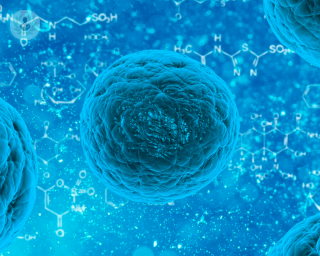

Stem cells: A promising alternative to surgery for back and joint pain
By Dr Anthony Hammond
2024-11-20
Chronic back and joint pain can significantly affect your quality of life. Traditionally, severe cases are often treated with surgery, which can be invasive and require a long recovery period. However, recent advancements in medical science have introduced stem cell therapy as a less invasive and promising alternative. Consultant rheumatologist Dr Anthony Hammond explores how stem cells work and why they might be a favourable option for managing back and joint pain. See more


Stem cells: how do they work?
By Professor Paul Lee
2024-11-20
Stem cell is changing the future of medicine. The therapy may be used to replace cells and tissues that have been damaged due to disease such as osteoarthritis. Expert orthopaedic surgeon and sports medicine specialist Mr Paul Lee explains how he uses them to repair bone and muscle damage. See more
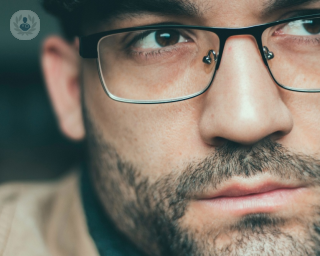

Regenerating the jaw with stem cells
By Mr Luke Cascarini
2024-11-18
It sounds like a plot from a sci-fi movie, but it's happening today in one of the top clinics in London. In a joint effort with The Regenerative Clinic, leading oral and maxillofacial surgeon Dr Luke Cascarini is pioneering stem cell therapy for TMJ disorders - one of the leading causes of jaw pain. We asked him how the treatment works and what his predictions are for the future. See more
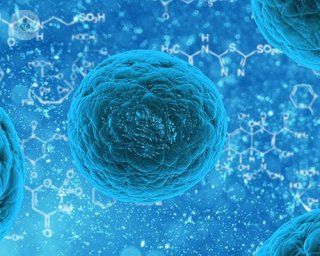

All about allogeneic stem cell transplantation
By Professor Stephen MacKinnon
2024-11-18
We hear specialist insight on the process of allogeneic stem cell transplantation, a common procedure for a number of blood and bone marrow disorders. See more
Experts in Stem cells
-
Mr Sebastian Dawson-Bowling
Orthopaedic surgeryExpert in:
- Hip replacement
- Knee replacement
- Stem cells
- Knee arthroscopy
- Hip arthroscopy
- Joint preservation surgery
-
Mr Fahad Gulam Attar
Orthopaedic surgeryExpert in:
- Knee osteoarthritis
- Stem cells
- Knee cartilage replacement
- Sports injuries
- Knee replacement
- ACL reconstruction
-
Professor Stefano Zanasi
Orthopaedic surgeryExpert in:
- Knee surgery
- Knee osteoarthritis
- Robotic surgery
- Stem cells
- Prolotherapy
- Arthroplasty
-
Dr Anthony Hammond
RheumatologyExpert in:
- Osteoarthritis
- Back pain
- Stem cells
- Medical cannabis prescription
- Platelet-rich plasma
-
Dr Richard Kaczmarski
HaematologyExpert in:
- Multiple myeloma
- Leukaemia
- Lymphoma
- Stem cells
- Anaemia
- Thalassaemia
- See all

Beaumont Hospital - part of Circle Health Group
Beaumont Hospital - part of Circle Health Group
Old Hall Clough, Chorley New Rd, Lostock, BL6 4LA
No existe teléfono en el centro.
By using the telephone number provided by TOP DOCTORS, you automatically agree to let us use your phone number for statistical and commercial purposes. For further information, read our Privacy Policy
Top Doctors

Pinnacle Global Healthcare
Pinnacle Global Healthcare
13 Lichfield Road
No existe teléfono en el centro.
By using the telephone number provided by TOP DOCTORS, you automatically agree to let us use your phone number for statistical and commercial purposes. For further information, read our Privacy Policy
Top Doctors

London Haematology
London Haematology
22 Devonshire Place, W1G 6JA
No existe teléfono en el centro.
By using the telephone number provided by TOP DOCTORS, you automatically agree to let us use your phone number for statistical and commercial purposes. For further information, read our Privacy Policy
Top Doctors
-
Beaumont Hospital - part of Circle Health Group
Old Hall Clough, Chorley New Rd, Lostock, BL6 4LA, BoltonExpert in:
- Audiology
- General Surgery
- Orthopaedic surgery
- Dermatology
- Pain management
- Hernia
-
Pinnacle Global Healthcare
13 Lichfield Road, StaffordExpert in:
- Orthopaedic surgery
- Diagnostics
- Pain management
- Physiotherapy
- Sports Medicine
- Regenerative Medicine
-
London Haematology
22 Devonshire Place, W1G 6JA, W1G Marylebone LondonExpert in:
- CAR-T therapy
- Haemato-oncology
- Haematology
- Myeloproliferative disorders
- Red blood cell disorders
- Stem cell transplant
- Most viewed diseases, medical tests, and treatments
- Hormone therapy
- Migraine
- Joint pain
- Nutrition
- Weight loss injections
- Endermologie
- Polynucleotides
- Lumbar herniated disc
- Abdominal pain
- Endovenous laser treatment (EVLA)
